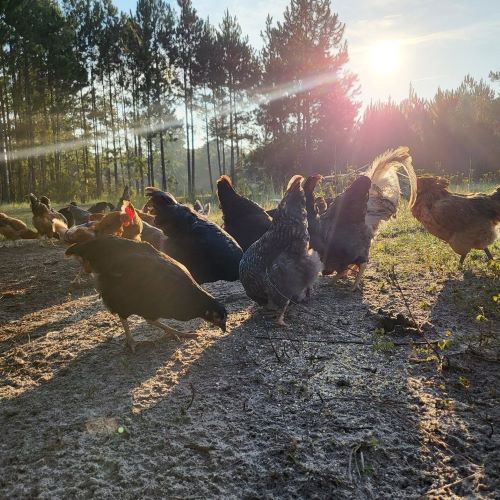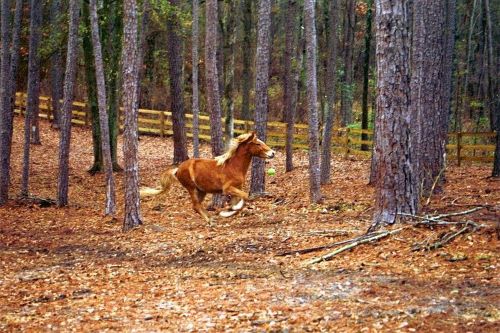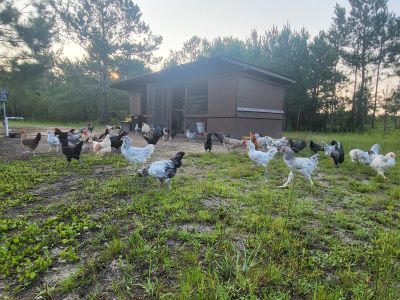The Role of Free-Range Farming in Sustainable Agriculture and Rural Development
Free-range farming is a sustainable agricultural practice that allows animals, particularly chickens, to roam freely outdoors, rather than being confined to cages or enclosures. In this method, chickens have access to open pastures, where they can forage for food, engage in natural behaviors, and enjoy a higher quality of life.
Sustainable agriculture plays a crucial role in rural development by promoting environmentally friendly practices that ensure the long-term viability of farming communities. Free-range farming, as a part of sustainable agriculture, contributes significantly to the overall well-being of rural economies.
Free-range farming has gained recognition for its positive impact on animal welfare, product quality, and the environment. It offers an alternative to intensive farming methods that prioritize high production rates at the expense of animal welfare and environmental sustainability.
Furthermore, free-range farming supports the principles of biodiversity and ecosystem preservation. By allowing chickens to roam freely, they can interact with their natural surroundings, contributing to the balance of local ecosystems.
Overall, free-range farming plays a vital role in rural economies by promoting sustainable practices, ensuring animal welfare, and preserving the environment.
Benefits of Free-Range Farming
Free-range farming offers numerous benefits that contribute to a healthier environment, improved animal welfare, and the preservation of biodiversity and ecosystems.
Health and Environmental Benefits
Free-range farming promotes healthier food options for consumers. Chickens raised in free-range systems have the opportunity to roam and forage outdoors, resulting in a more varied and nutrient-rich diet. This translates into eggs that are higher in essential nutrients such as omega-3 fatty acids and vitamins.
Furthermore, free-range farming reduces the need for synthetic fertilizers and pesticides. The chickens’ natural foraging behavior helps control pests and weeds, minimizing the use of harmful chemicals. This sustainable approach to farming helps protect soil quality and water sources, contributing to a healthier ecosystem.
Positive Impact on Animal Welfare and Product Quality
Free-range farming prioritizes the well-being of animals. Chickens are given ample space to move around, stretch their wings, and engage in natural behaviors. This freedom of movement and access to fresh air and sunlight improves their overall welfare.
Moreover, the stress-free environment and natural diet of free-range chickens result in higher-quality products. The eggs produced by free-range chickens are often praised for their superior taste, vibrant yolks, and firmer texture.
Contribution to Biodiversity and Ecosystem Preservation
Free-range farming plays a crucial role in preserving biodiversity and protecting ecosystems. By allowing chickens to roam freely, they have the opportunity to interact with their natural surroundings. They can forage on insects, seeds, and plants, contributing to the natural balance of the ecosystem.
Additionally, free-range farming systems often incorporate diverse vegetation and habitats, providing shelter and food sources for various wildlife species. This helps maintain a healthy and thriving ecosystem, supporting the conservation of native flora and fauna.
Economic Impact of Free-Range Farming
Free-range farming plays a crucial role in rural economies, contributing to job creation, income generation, and overall economic growth. Let’s explore the various ways in which free-range farming positively impacts local communities.
Job Creation and Income Generation in Rural Communities
One of the significant benefits of free-range farming is its potential to create employment opportunities in rural areas. As small-scale farms embrace free-range practices, they require a workforce to manage and care for the animals, maintain the pastures, and handle the production and distribution of farm products. This leads to the creation of jobs, providing income for individuals and families within the community.
Strengthening Local Food Systems and Reducing Dependence on Imports
Free-range farming contributes to the development of robust local food systems. By producing eggs, meat, and other farm products locally, farmers can meet the demands of the community, reducing the need for importing food from distant locations. This not only ensures a more sustainable and self-reliant food system but also supports local farmers by providing a market for their products.
Boosting Tourism and Agritourism Opportunities
Free-range farms, with their picturesque landscapes and sustainable farming practices, have the potential to attract tourists and visitors. Agritourism, which involves offering farm tours, farm stays, and other agricultural experiences, can be a significant source of additional income for farmers. Tourists are often interested in learning about free-range farming methods, interacting with animals, and experiencing the farm-to-table concept firsthand. This boosts local tourism and creates opportunities for farmers to diversify their income streams.
Fostering Social Connections and Community Engagement
Free-range farming plays a crucial role in fostering social connections and community engagement within rural areas. By raising free-range chickens and other animals, homesteaders create opportunities for neighbors and community members to come together and collaborate.
One of the ways free-range farming fosters social connections is through shared responsibilities. Homesteaders often rely on the support of their community to care for their animals, especially during times when they are away or need extra help. This creates a sense of camaraderie and encourages neighbors to work together towards a common goal.
Additionally, free-range farming can serve as a platform for community events and gatherings. Homesteaders may organize farm tours, workshops, or even potluck dinners where people can come together, learn about sustainable farming practices, and share their experiences. These events not only strengthen social bonds but also create a sense of belonging and pride within the community.
Supporting Local Markets and Farmers’ Markets
Free-range farming contributes to the growth and sustainability of local markets and farmers’ markets. By producing high-quality, ethically-raised products, homesteaders can meet the increasing demand for organic and locally sourced food.
When homesteaders participate in farmers’ markets, they not only provide consumers with fresh and nutritious products but also support the local economy. By purchasing directly from the farmers, consumers contribute to the financial stability of the homesteaders and help them continue their sustainable farming practices.
Furthermore, the presence of free-range farmers at local markets encourages healthy competition and diversifies the range of products available. This benefits both the farmers and the consumers, as it promotes innovation and ensures a variety of options for those seeking sustainable and ethical food choices.
Encouraging Knowledge Sharing and Skill Development
Free-range farming creates opportunities for knowledge sharing and skill development within the community. Homesteaders who engage in this type of farming often possess a wealth of knowledge and experience that they are eager to share with others.
Through workshops, mentorship programs, or even online platforms, homesteaders can pass on their expertise to aspiring farmers or individuals interested in sustainable agriculture. This knowledge sharing not only empowers individuals to start their own free-range farming ventures but also strengthens the overall farming community.
Moreover, free-range farming encourages skill development in various areas. From animal husbandry and organic gardening to resource management and sustainable practices, individuals involved in free-range farming gain valuable skills that can be applied in other aspects of their lives. This contributes to the overall growth and resilience of the community.
5. Free-Range Farming as a Catalyst for Rural Economy
Free-range farming not only provides sustainable agricultural practices but also serves as a catalyst for rural economic development. Let’s explore how it diversifies income sources for farmers, creates value-added products, and fosters rural entrepreneurship.
Diversification of Income Sources for Farmers
One of the key advantages of free-range farming is the ability to diversify income sources for farmers. By raising free-range chickens for egg production, meat, and other products, farmers can tap into multiple revenue streams. This diversification helps mitigate risks associated with relying solely on a single agricultural product, providing stability and resilience to the farm’s financial health.
Value-Added Products and Niche Markets
Free-range farming opens doors to the creation of value-added products and the exploration of niche markets. Farmers can develop unique products such as organic free-range eggs, specialty poultry breeds, or artisanal poultry products. These value-added products cater to consumers seeking high-quality, ethically produced goods, allowing farmers to command premium prices and increase profitability.
Leveraging Free-Range Farming for Rural Entrepreneurship
Free-range farming presents opportunities for rural entrepreneurship. Aspiring farmers can start their own free-range chicken operations, leveraging the growing demand for organic and ethically raised poultry products. Additionally, farmers can establish related businesses, such as farm-to-table restaurants, poultry processing facilities, or agritourism ventures. These entrepreneurial endeavors not only generate income but also contribute to the overall development of the rural economy.
By embracing free-range farming, rural communities can unlock the potential for economic growth and prosperity. The diversification of income sources, creation of value-added products, and promotion of rural entrepreneurship all contribute to a thriving local economy.
Challenges and Solutions in Free-Range Farming
While free-range farming offers numerous benefits, it also comes with its fair share of challenges. Overcoming these challenges is crucial to ensure the long-term success and sustainability of free-range farming practices.
Balancing profitability with sustainability
One of the main challenges faced by free-range farmers is finding the right balance between profitability and sustainability. While it is important to generate income, it should not come at the expense of the environment or animal welfare. Farmers need to implement efficient management practices that optimize productivity while minimizing negative impacts on the ecosystem.
Addressing infrastructure and resource limitations
Free-range farming often requires adequate infrastructure and resources to support the well-being of the animals and the overall farm operations. This includes providing suitable housing, access to pasture, and clean water sources. However, limited financial resources or lack of available land can pose challenges in meeting these requirements. Farmers must find innovative solutions such as utilizing mobile coops or optimizing existing resources to overcome these limitations.
Overcoming regulatory hurdles and market barriers
Free-range farmers may face regulatory hurdles and market barriers that can hinder their operations and profitability. Compliance with regulations related to animal welfare, food safety, and environmental standards can be complex and time-consuming. Additionally, accessing markets and competing with larger-scale producers can be challenging. Farmers need to stay informed about regulations, seek support from agricultural organizations, and explore alternative marketing channels such as farmers’ markets or direct-to-consumer sales to overcome these barriers.
By addressing these challenges, free-range farmers can ensure the sustainability and success of their operations while contributing to rural development.
Conclusion
Throughout this article, we have explored the significant role of free-range farming in rural development. From its numerous benefits to its economic impact and community development potential, free-range farming has proven to be a catalyst for sustainable growth and community empowerment.
Free-range farming plays a crucial role in promoting sustainable agriculture practices, ensuring the health and well-being of animals, and preserving our environment. By allowing chickens to roam freely and engage in natural behaviors, we not only produce high-quality eggs but also contribute to biodiversity and ecosystem preservation.
Moreover, free-range farming has a positive economic impact on rural communities. It creates job opportunities and generates income for local farmers, reducing their dependence on imports and strengthening local food systems. Additionally, free-range farming opens doors for agritourism, attracting visitors who appreciate the authenticity and connection to nature that these farms offer.
Community development is another significant aspect of free-range farming. By fostering social connections and community engagement, free-range farms become hubs for knowledge sharing and skill development. They support local markets and farmers’ markets, promoting a sense of community and encouraging sustainable practices.
Free-range farming also presents opportunities for rural entrepreneurship. Farmers can diversify their income sources by exploring value-added products and niche markets. By leveraging the unique qualities of free-range farming, such as the superior taste and nutritional value of free-range eggs, farmers can create sustainable businesses that contribute to the overall growth of the rural economy.
However, it is important to acknowledge the challenges that come with free-range farming. Balancing profitability with sustainability, addressing infrastructure and resource limitations, and overcoming regulatory hurdles and market barriers require careful planning and support from the community and policymakers.
In conclusion, free-range farming is not just about raising chickens or producing eggs; it is about creating a sustainable future for rural communities. By embracing free-range farming practices, we can ensure the well-being of animals, protect our environment, and empower local economies. Let us continue to support and promote free-range farming as a vital component of rural development.
Related FAQ
What is free-range farming?
Free-range farming is a sustainable agricultural practice that allows animals, particularly chickens, to roam freely outdoors, rather than being confined to cages or enclosures. This method promotes animal welfare, product quality, and environmental sustainability.
What are the benefits of free-range farming?
Free-range farming offers numerous benefits, including healthier food options, improved animal welfare, preservation of biodiversity and ecosystems, job creation, income generation, and community development.
How does free-range farming contribute to the environment?
Free-range farming reduces the need for synthetic fertilizers and pesticides, helps control pests and weeds naturally, protects soil quality and water sources, and supports biodiversity and ecosystem preservation.
How does free-range farming impact local economies?
Free-range farming contributes to job creation, income generation, strengthening local food systems, reducing dependence on imports, boosting tourism and agritourism opportunities, and fostering social connections and community engagement.
What are the challenges in free-range farming?
The challenges in free-range farming include balancing profitability with sustainability, addressing infrastructure and resource limitations, and overcoming regulatory hurdles and market barriers.
Key Take Away
- Free-range farming promotes animal welfare, product quality, and environmental sustainability.
- It offers healthier food options, reduces the need for synthetic fertilizers and pesticides, and protects soil and water sources.
- Free-range farming contributes to job creation, income generation, and the development of robust local food systems.
- It attracts tourists through agritourism opportunities and fosters social connections and community engagement.
- Free-range farming diversifies income sources, creates value-added products, and fosters rural entrepreneurship.
Glossary
- Sustainable Agriculture: Agricultural practices that promote long-term viability, environmental friendliness, and the well-being of farming communities.
- Animal Welfare: The well-being and humane treatment of animals, ensuring their physical and mental health.
- Biodiversity: The variety of plant and animal species within an ecosystem, contributing to its overall health and resilience.
- Rural Economy: The economic activities and development within rural areas, including agriculture, job creation, and income generation.
- Agritourism: A form of tourism that involves visiting and experiencing agricultural activities, such as farm tours, farm stays, and farm-to-table experiences.


